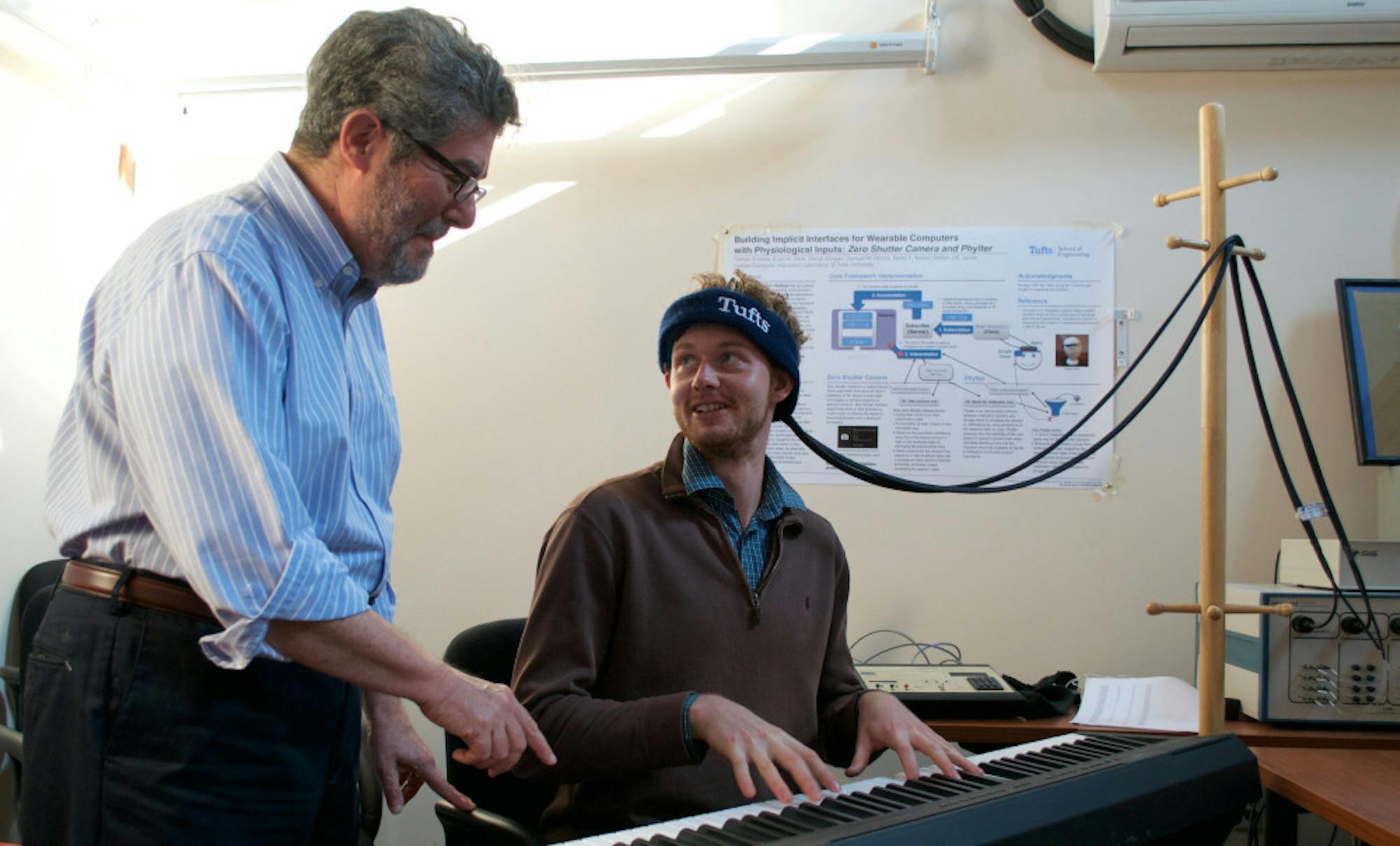Computer Science Ph.D. candidate Beste Filiz Yuksel and her colleagues have found a new learning method for playing the piano - one that can read your brain as you learn. While the BACh system, or Brain Automated Chorales system, works specifically with learning how to play the piano, the team aims to better understand how computer systems and music can affect rates of learning in general.
Those working alongside Yuksel include her advisor, Professor Rob Jacob, Ph.D.,Tufts graduate Kurt Oleson (E '15) and others. According to Jacob, BACh is a human brain-computer interface that is designed to facilitate rapid music learning using the famous Bach chorales.Yuksel wrote in an email to the Daily that she wanted to create a system that could help people with their learning acquisition and chose music due to its complexity.
“My hope has always been that brain-computer interfaces one day become part of our everyday life,” Yuksel wrote in an email to the Daily.
According to Jacob, he and Yuksel started working together on BACh in early 2015, having worked together before with music and brain-computer interfaces in 2013. In regards to BACh, according to him, they decided to take beginner-level pianists and have them learn the Bach chorales.
Chorales are comprised of four separate parts: soprano, alto, tenor and bass. For the study, participants were asked to learn two different chorales. For one chorale, they were told to learn it with the method they normally use or were taught to use. For the other chorale, the participants learned the piece using the BACh system's assistance. While the traditional learning method has participants use self-judgement to progress to the next part, the BACh system, evaluates the students' readiness to move forward and subsequently assigns the next part for the student to learn.
Jacob explained that the oxygen levels in the participants’ pre-frontal cortexes were measured to determine cognitive workload while learning a single part of the chorale with the BACh. The system measured short-term memory workload through functional near-infrared spectroscopy (fNIRS). The system could see how much a participant’s brain was “struggling” to process and memorize the notes.Once the system detected when a participant had nearly mastered one section, it would give the player a new section once they had finished, Jacob said.
More detailed results are included in the BACh team's paper, titled “Learn Piano with BACh: An Adaptive Learning Interface that Adjusts Task Difficulty based on Brain State." According to the paper, variables including missed notes, total time played and the gap between notes were used for assessment of the participant's successful learning. The paper will officially be presented in May.
The results of BACh were substantial. According to a Feb. 9 New Scientist article, pianists played faster and with more accuracy in 15 minutes with BACh than without. Furthermore, self-identified beginner pianists benefited more than pianists who describe themselves as intermediates.
Yuksel explained what differentiates her research and what it means for future research in the field.
“This is the first time that cognitive workload has been measured using brain sensing and used in real-time in a learning task," Yuksel wrote in an email to the Daily. "This has implications beyond music and computer science and can be investigated in other fields of learning."
This was not Yuksel’s first time working with music. She and Jacob previously worked on a project titledBRaaHMS (Brain Automated Adaptive Harmonies in a Musical System). According to Yuksel, BRaaHMS involved measuring cognitive workload, which helped piano players improvise and become more creative in playing piano harmonies.
In terms of future research regarding the integration of computer science and music, Yuksel hopes to one day be able to create a system that can also detect emotions such as anxiety and frustration during the learning process.She wrote that she would like to integrate this into interpreting music learning rates. Furthermore, she wrote that one day, the fNIRS machine used to monitor the brain's cognitive workload may be portable, thus facilitating this type of research.
Professor Paul Lehrman, Ph.D.,computer music expert and one of Yuksel’s point people in her work, noted that computers have been involved with music production for at least 30 years, and the field is still continuing to move forward — the BACh project is a small piece in the entire advancement of the field. According to him, these advancements benefit society on multiple levels.
“Music stimulates the brain in so many different ways," Lehrman said. "We do know that the brain responds to [music] on a large number of levels simultaneously, and it engages the brain in a very complex way. So, to learn [music] means that you’re exercising your brain in a lot of ways having to do with patterns, perception of time, perception of space…and also on a social level. It teaches discipline, cooperation and social structure.”








